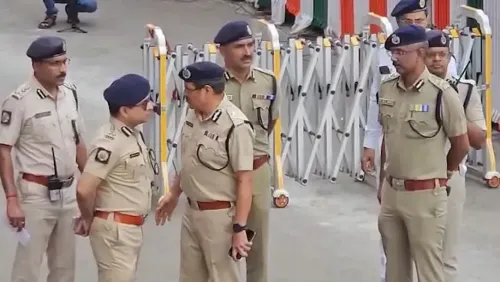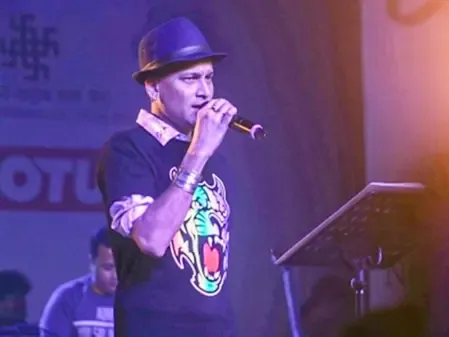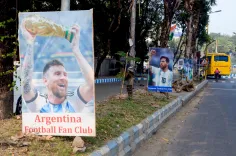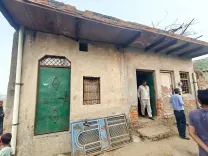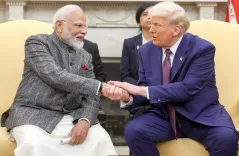Did the Delhi Court Really Dismiss the Petition Against the Supreme Court’s Historic Ayodhya Verdict?

Synopsis
Key Takeaways
- Delhi Court dismisses a frivolous petition against the Ayodhya verdict.
- Significant fines imposed to deter future frivolous lawsuits.
- Justice Chandrachud's remarks were clarified as spiritual, not biased.
- The ruling emphasizes judicial integrity and accountability.
- Increased vigilance against targeting public officials post-retirement.
New Delhi, Oct 25 (NationPress) The Patiala House Court in Delhi has rejected a petition contesting the Supreme Court's landmark Ayodhya verdict.
Attorney Mahmood Pracha had submitted a petition to invalidate the Supreme Court's 2019 ruling made by a five-judge bench.
In his filing, he also challenged the lower court's decision not to entertain his civil suit.
Pracha argued that former Chief Justice of India, Justice D.Y. Chandrachud, was on the panel that resolved the Ayodhya case, but Justice Chandrachud, during a speech last year, affirmed that the verdict was in alignment with the resolution provided by Bhagwan Shri Ram Lalla Virajman. It is noteworthy that Shri Ram Lalla was among the parties involved in the Ayodhya litigation.
District Judge Dharmendra Rana from the Patiala House Court dismissed Pracha's petition, labeling it as frivolous, misleading, and an abuse of judicial process.
Upon dismissing the petition, the court levied a fine of Rs 6 lakh on Pracha, in contrast to the Rs 1 lakh penalty imposed by the trial court.
The court noted that the previous fine had not deterred frivolous filings and deemed it necessary to substantially increase the penalty to discourage such behavior.
In the English translation of Justice Chandrachud's speech included in the court's ruling, he did not mention Ram Lalla but expressed that he prayed for a resolution to the Ayodhya issue.
Pracha also listed Bhagwan Ram Lalla Virajman as a party in his lawsuit, naming then Chief Justice Dhananjay Yashwant Chandrachud as the next friend of Ram Lalla Virajman.
Previously, the lower court had rejected Pracha's petition in April 2025, imposing a Rs 1 lakh fine.
Pracha challenged the lower court's ruling from October 18 in the district court. Judge Rana, referencing both the Ayodhya verdict and the remarks made by the former Chief Justice, determined that Justice Chandrachud's prayer was a spiritual expression, devoid of bias or external influence.
The court explained that Pracha failed to recognize the crucial difference between the Supreme God and the legal identity representing the litigant. His misunderstanding of the intersection between religion and law was evident, suggesting he did not thoroughly examine the Ayodhya judgment.
Judge Rana emphasized that seeking divine guidance based on personal belief cannot be construed as deceit or manipulation of the judicial process.
Furthermore, the court concluded that Pracha's petition is barred under the Judges' Protection Act, 1985, which prohibits civil or criminal actions against judges during their official duties. Pracha mistakenly identified former CJI Chandrachud as a close associate of Bhagwan Shri Ram Lalla Virajman while neglecting other crucial parties involved in the original Ayodhya case.
Justice Rana expressed concern over the increasing trend of targeting public officials post-retirement. He urged the judiciary and legal community to remain vigilant against such malicious narratives. It is particularly disheartening when the protector turns into a predator. Despite being an experienced attorney, Pracha chose to advocate for the wrong side, exacerbating the issue rather than contributing to its resolution. His appeal was deemed not only false and frivolous but also excessively indulgent.
The District Court upheld the lower court's ruling, thereby increasing the fine on Pracha from Rs 1 lakh to Rs 6 lakh.



